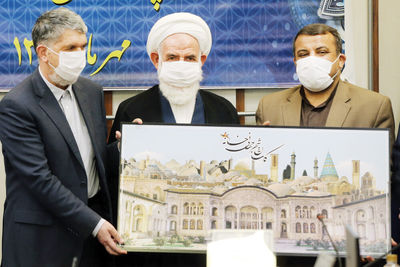The Ministry of Culture and Islamic Guidance selected the central Iranian city, famous for its rosewater and historical monuments, as the capital of the Nahj-ul-Balaghah in August.
The choice was officially announced by Deputy Culture Minister Abdolhadi Feqhizadeh.
“We hope a series of important and positive events in the religious-cultural arena will begin after Kashan has been named the capital of the Nahj-ul-Balaghah,” he said.
The Nahj-ul-Balaghah (The Peak of Eloquence) was compiled by Seyyed Razi (d. 1015). It has been translated into many languages, including English, French, Russian and Spanish.
“Kashan enjoys a rich cultural and scientific background and Allameh Qutbeddin Rawandi, as an eminent commentator of the Nahj-ul-Balaghah, was from Kashan. In addition, the city has been home to one of the most influential cultural institutes of the Quran, as well as the Institute of Imam Ali (AS), which trains many memorizers of the Nahj-ul-Balaghah,” he said.
He added that these are good reasons to select Kashan as the capital of the Nahj-ul-Balaghah.
Kashan embraces abundant scenic landscapes, historical sites, and monuments such as UNESCO-registered Fin Garden with its Safavid and Qajar era edifices, Tabatabai House, Borujerdi House, Ameri House, a traditional bazaar, and Jame Mosque of Kashan.
Every year, by late April, dozens of festivals of rose and rosewater start to take the center stage in Kashan along with other nearby townships and villages.
The distillation ceremonies, which are commonly known as “Golab-giri”, usually attract thousands of people from different parts of the country and abroad to witness the iconic tradition of the region.
While Kashan and its neighboring villages are covered with pink roses and the scent of the flowers spreads over the area, visitors can have a unique experience watching the process of making rosewater from harvesting to steaming rose petals.
Source: Tehran Times

